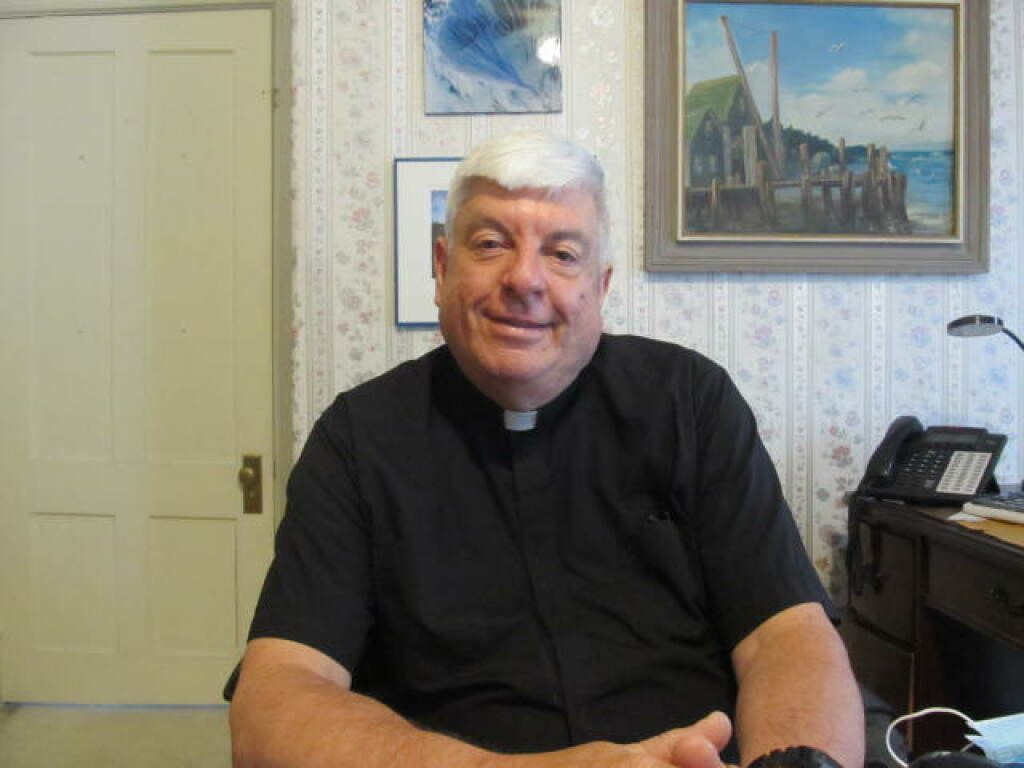 Life: it takes courageous faith!
Life: it takes courageous faith!
A rabbi friend told me a story…It relates to the Old Testament tradition about the Exodus of the Israelites out of Egypt. You have the huge crowd of Hebrew people with Moses in the lead. Behind them, the Pharaoh’s army is in hot pursuit. Those escaping bondage have come to the edge of the Sea. Moses raises his arms, points the staff at the sea, and voices a prayer asking God to lead the people to safety. But nothing happens. Indeed, nothing happens until the first person actually steps into the water and shows, through this simple act, that he had faith in God’s promises. When that first step of courage is taken, the sea parts, and the people can cross over into freedom.
I want to focus our attention on the second reading today because it is a celebration of faithful courage. The author of the Letter to the Hebrews points out the various ways in which Abraham courageously shows his faith. Abraham, by the way, was the ancient Patriarch who lived some two thousand years before Christ. The three major monotheistic religions (those that believe in one God), Judaism, Christianity and Islam, can all trace their origins to Abraham.
The story of Abraham’s faith is a story of courage, trust, and surrender to the will of God.
Abraham is asked to pack up his family and take them to a foreign land that God will show him. Abraham obeys. God promised that Abraham’s descendants would be as numerous as the stars of the sky or the sands of the seashore, but Abraham was 100 and his wife Sarah 90 at the time. It seemed impossible, but Abraham trusted God, and they had a son, named Isaac. Then, in an ultimate test of Abraham’s faith, God asks him to sacrifice his son Isaac—the very one through whom God’s promises would be fulfilled. With great courage and trust, Abraham made ready the sacrifice, and then was stopped by God because he could clearly see Abraham’s faith in action. Thus, faith is not just something cerebral; it is much more than an idea. True faith needs to be lived.
There was a great psychologist named Erik Erikson, who studied and wrote about the various psychological challenges placed before us in the various developmental stages each person goes through. I think it is significant that the very first challenge Erikson identifies is trust (vs. mistrust). A baby, born into what must seem a strange and fearful world, must learn trust from the protective and nurturing love of mother, father and family.
As we age and our world gets larger, there are new challenges to trust: leaving home, figuring out what to do with one’s life, finding a mate or a vocation, navigating through the challenges life throws at us: these steps all take faith and courage.
And it seems that toward the end of life, the task is still not completed. With the loss of strength, the onset of illness and disease, the aches and pains that come from what once were routine actions, memory becoming fuzzy, growing dependence on others…the challenges never seem to end, and great faith and courage are required.
In the gospel Jesus talks about the end time, and the need to be prepared for our face-to-face encounter one day in the future. But we prepare for that day in the present. With each challenge that life places before us, it is as if God teaches us what is most important by the falling away of everything else, of all other securities. Just as with Abraham, with each new situation, God is asking: Do you still trust me? Do you still have faith? Do you have the courage it takes to carry your particular cross, just as I did on the road to Calvary?
Hopefully, wherever you are in your journey, and no matter what you are facing, you will have the courageous faith of Abraham, a real, lived faith, like the first Hebrew that dared to put his foot in the water, and like Jesus himself, who trusted, even on the cross.
You might also like
Father's Homilies




